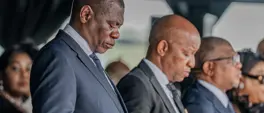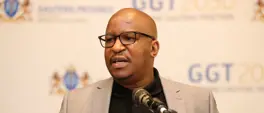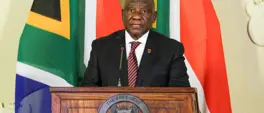CHRIS OXTOBY & JUDITH FEBRUARY | JSC interviews – hope and questions
Judith February
10 October 2025 | 12:43The country’s highest court has been without its full complement of permanent judges since 2016, and until the appointment of Deputy Chief Justice Mlambo earlier this year, two vacancies had stood open since October 2021.
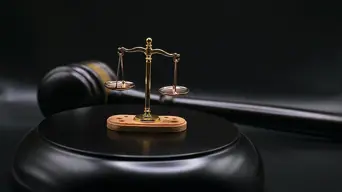
Picture: Pixabay.com
Last week the Judicial Service Commission (JSC) began a marathon round of interviews for over 20 vacancies on various superior courts. The interviews offer hope that some long-outstanding vacancies will finally be filled but also raises questions about the JSC’s shortlisting process.
The most closely watched interviews will be those for the Constitutional Court. The country’s highest court has been without its full complement of permanent judges since 2016, and until the appointment of Deputy Chief Justice Mlambo earlier this year, two vacancies had stood open since October 2021. The JSC has experienced repeated difficulties in filling these vacancies.
In several instances, the vacancies were advertised but insufficient candidates were nominated to allow the positions to be filled. When the JSC was faced with enough candidates, in April 2022, it controversially only put forward enough candidates for one vacancy to be filled, snubbing celebrated judge David Unterhalter.
Numbers are especially important for Constitutional Court vacancies.
For other superior courts the JSC makes a recommendation which is effectively binding on the President, who makes the formal appointment.
For the Constitutional Court, however, the JSC must compile a list of three more candidates than the number of vacancies, from which the President choses who to appoint. In this round, with two vacancies up for grabs, the JSC must send five names to the President, and must therefore interview an absolute minimum of five candidates.
Ideally more – appointments have in the past not been made when a candidate withdrew during interviews, leaving the JSC without enough candidates to place before the President.
Happily, the JSC has been able to shortlist seven candidates on this occasion. The list includes some legal heavyweights, such as experienced SCA judges Dambuza-Mayosi, Goosen and Schippers, and leading high court judges Opperman and Savage.
Alan Dodson, who has been a candidate on several previous occasions and as served as an acting judge at the Court, is also back in the mix.
A surprise inclusion on theshortlist is Dr Madumetja Malepe. The candidate review carried out by the General Council of the Bar (GCB) highlights some concerning aspects of Dr Malepe’s candidacy, which raises questions about the JSC’s shortlisting process.
The GCB highlights that the candidate:
• is under debt review.
• was previously accused of the theft of church funds.
• listed on her application form, as significant cases she had appeared in, case which the GCB was unable to locate or was unable to confirm she had been involved in.
• has only written one peer-reviewed article during her academic career and has not written any judgments.
• Has not sat as a judge and has accordingly not written any judgments and lacks experience as a legal practitioner.
The review also raises concerns about the arguments advanced, and methodology employed, in Dr Malepe’s PHD thesis, and questions whether she has sufficient experience or expertise to meet the standard required of a Constitutional Court judge.
In the early years of the Constitutional Court, some diversity of the background of its judges was considered necessary (the Constitution notably requires that only four out of the court’ eleven judges must have been judges prior to their appointment to the CC).
There are many examples of celebrated judges, especially in the Court’s early years, who had been appointed directly from the legal profession or academia (Kate O’Regan and the late Yvonne Mokgoro are examples of the latter).
But circumstances have changed.
The Court’s jurisdiction has been expanded so that it is now no longer only a specialist constitutional court, and it has experienced well-documented challenges in coping with its workload.
This seems to have made the JSC less sympathetic to candidates from outside the judiciary and the legal profession, as was evident in last year’ interview of Professor David Bilchitz. Bilchitz, unlike Dr Malepe, was acting as a judge of the Constitutional Court at the time but had not yet written a judgment and had no other judicial experience. He faced extensive questioning about his lack of judicial experience, and was not shortlisted for potential appointment.
It would be pleasing if Dr Malepe turned out to be an excellent candidate, but on the face of it, her inclusion on the shortlist raises serious questions about the JSC’s shortlisting process. The issues relating to debt review and, in particular, the church funds are concerning and may impact on whether the candidate is fit and proper for appointment.
But assuming there are defensible explanations which would satisfy the JSC, the question of whether the candidate has the strength of track record, experience, and expertise to be seriously considered as a potential judge for the highest court in the country remains.
The publicly available information, and the reservations captured in the GCB’s review, suggest that Malepe's shortlisting is seriously misguided. Whilst it is true that some of our greatest jurists have come from backgrounds in academia and the legal professions directly to the Constitutional Court, they were leaders in their fields with demonstrable track records of excellence.
As the GCB cautions, this candidate “does not exemplify the calibre of academic appointments” that would demonstrate that judicial office is not reserved for legal practitioners.
In a 2022 report on the performance of the JSC, Freedom Under Law raised concerns about the JSC’s shortlisting process, highlighting that the mandate, composition and functioning of the committee responsible for shortlisting was unclear. The report also highlighted criticisms that the JSC had been insufficiently strict in its shortlisting practices.
The report recommended that the JSC ensure transparency over the selection of the screening committee and the criteria it applies to shortlist candidates. Once the dust has settled from the forthcoming interviews, it would seem an opportune time for the JSC to re-examine this process.
Get the whole picture 💡
Take a look at the topic timeline for all related articles.
Trending News
More in Opinion

10 October 2025 17:39
MALAIKA MAHLATSI | The rise of political celebrities and the appeal of the lowest common denominator
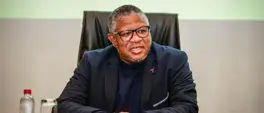
8 October 2025 08:56
CHARLES MATSEKE | Mogotsi vs Mbalula: ANC mutually assured distraction

8 October 2025 07:51
JAMIL F. KHAN | Ngizwe Mchunu hate speech sparks rare moment of united defence of constitutional values




